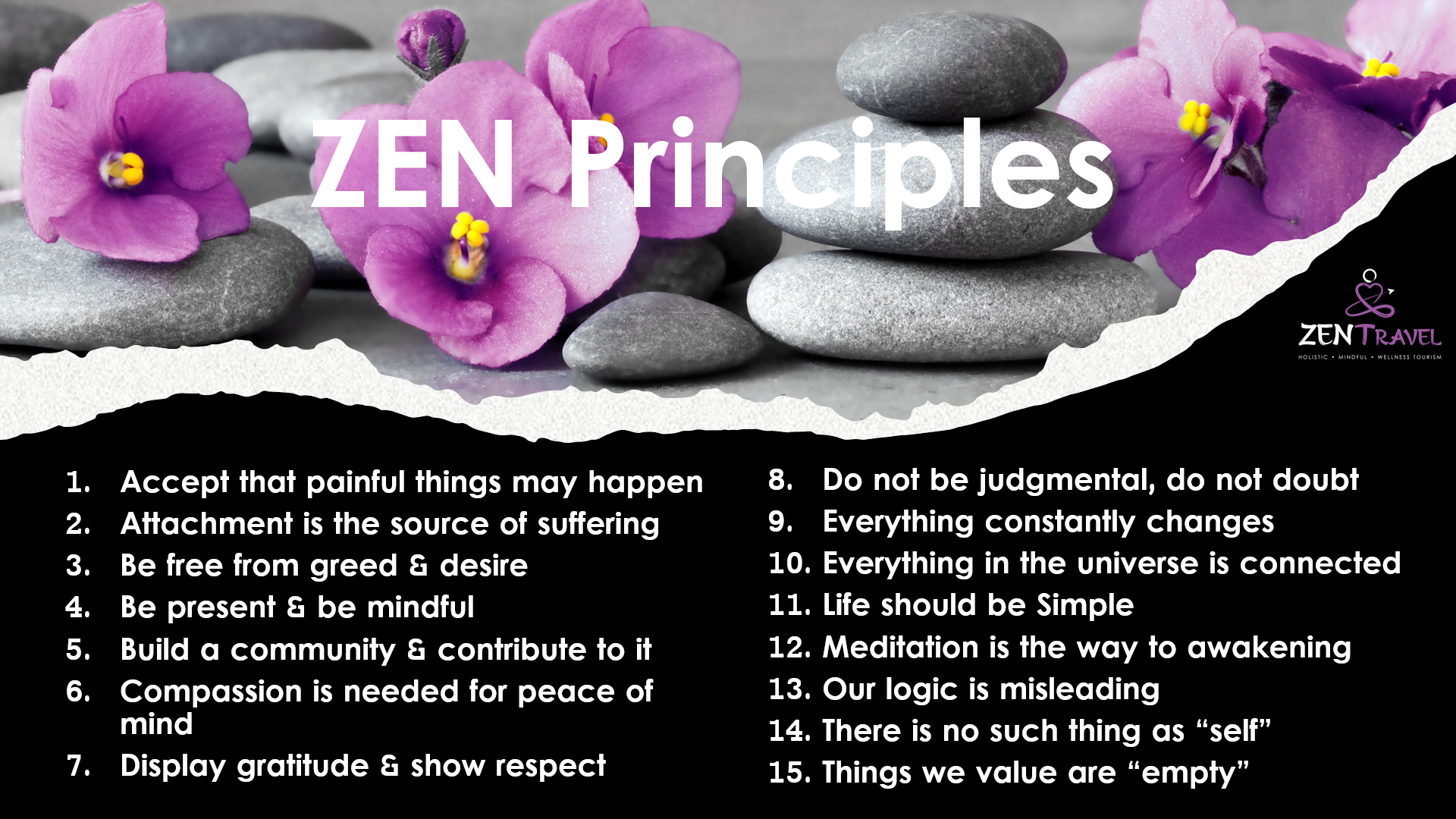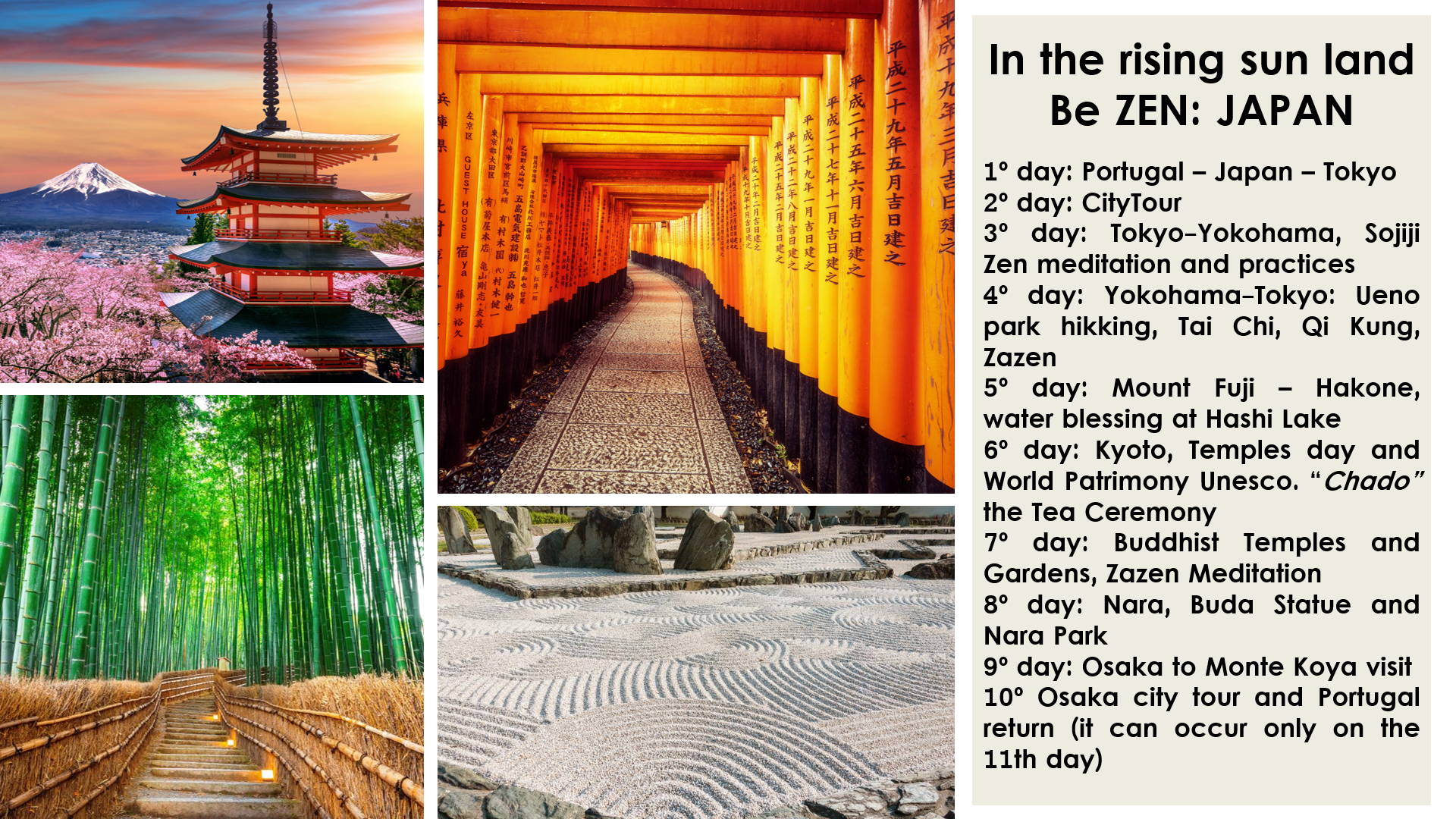
In a world based on the premise of an "extractive economic system that takes nature as a mere resource that can be exploited mercilessly" (Coll, 2022), suffering is inevitable worldwide. A suffering that is inherent to the cycle of living, the cycle of birth and death, or samsara. Zen & Tao philosophies are more relevant than ever.
Living life in harmony with nature in interdependence, with wisdom, compassion, and humility, are the main principles of both Buddhism and Taoism (Zen & Tao). Both are essentially ways of liberation. Zen also combine their idea of "Emptiness" (Buddhism) and "Nothingness" (Taoism) (Suzuki, 2004).
A millennium ago, Buddhism and Taoism, by studying and observing nature, developed an advanced systems view of life that has been rediscovered in modern science across several fields, such as medicine, quantum physics, and neuroscience. Definitely, they are not a religion; they are not based on God(s). It can be practised simultaneously with other beliefs. Their pillars are Galaxies, Earth, a city, an organisation, a person, a forest, a tree, flowers, a bee... all sentient beings. The whole system is complex, larger than the sum of its parts, and mutually influences each other as one.

ZEN - Derives from the Sanskrit word dhyana, meaning "meditation"—the way to achieve awakening that is possible for anyone.
Two thousand five hundred years ago, the Indian prince Siddharta Gautama, known as Shakyamuni Buddha (the word Buddha means awakened one), taught that we can all awaken; we are all Buddhas. With this belief and premise, Buddhist philosophy was embraced throughout Asia. In China, in the VII century, it merged with Taoism and evolved into Ch'an (the word for meditation) and Zen in Japan (approx. 1191).
Gautama posits that through dedicated and consistent meditation practice, we can realise that self and others are one, that the conditioned and unconditioned are simultaneous, and that the absolute and relative are identical. This is how natural compassion and wisdom flow: a peaceful, intuitively appropriate response to the circumstance that arises.
Buddhists believe in a wheel of rebirth into different bodies. This is connected to "karma," which refers to how a person's past good or bad actions, or those in past lives, can affect them in the future. And only by the "The Way of Middle" and through the four noble truths, one can achieve enlightenment (nirvana).
So, breathe in slowly with gratitude and awareness, and breathe out with appreciation and love. Care for the environment, start with your own action, and do not waste the earth's precious resources; every action has consequences. We vow to live here and now with attention, integrity, authenticity, compassion, and gratitude, and to free all beings from illusion, delusion, and suffering.
Just for today, I'm calm
Just for today, I'm diligent and honest
I'm kind to others
I express gratitude
May my whole body be positive energy for my highest good
May all beings be free from suffering
.png)
TAO - It means the "way of energy literally". Its fundamental principles are based on contemplation of nature and its phenomena, and on self-contemplation as a way of seeking harmony.
The Tao symbol is formed by two forces that make up everything that exists in the universe, visible and not visible, the Yin and the Yang:
- Yin is the dark, cloudy, cold, small, rest, the interior, the recollection, the introspection.
- Yang in opposition is clear, sunny, hot, big, and movement; outer, expansion, and strength.
Taoist philosophy began in the second century, with Lao Tzu, who founded the idea of "The way of energy". Ch'i, or Qi, is the energy present in and guiding everything in the universe.
The teachings and symbols of Taoism are compiled in the "Book of Changes: I Ching". It is these concepts that underlie the principles and techniques of Traditional Chinese Medicine, and martial arts, from Qi Qong to Tai Chi, in the harmonisation of human beings with the environment, through the art of Feng Shui. They apply to the arts of divination, fortune-telling, and oracular and astrological techniques.
The "wushu" (or the five arts) are the broadest categories:
- Medicine - Eating the right food at the right time of year
- Martial Arts - internal and external training
- Qi Qong - practice for health, longevity, sexual capacity, martial arts, to attain immortality, meditation
- Divination - astronomy, astrology, geomancy, Feng Shui, mediumship, military strategies (Sun Tzu). This category does not exist in Zen philosophy.
- Spirituality - the cultivation of spirituality through meditative practices with visualisation. In opposition to Zen principles, meditation is based on the Void of thoughts and emotions.
Taoists believe in spiritual immortality, where the spirit of the body joins the universe after death. Taoism teaches that all living creatures ought to live in harmony with the universe and the energy within it.
1 - Japan - In the Rising Sun Land Be ZEN
Prices: on request (zentravel@ravt.pt) Duration: 10 or 12 Days Nº Participants: Mín. 8 Max. 25 Pick up: Airport
